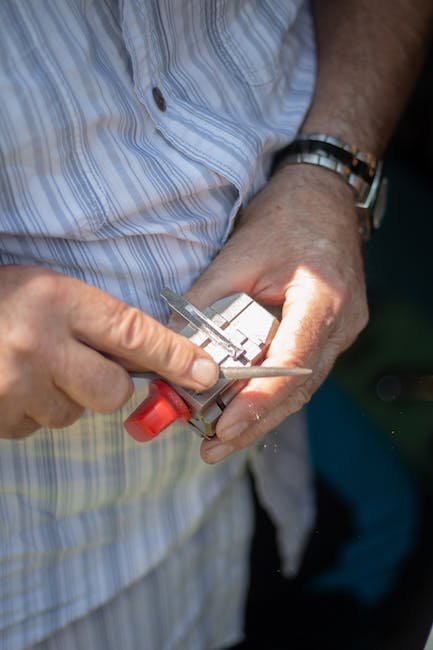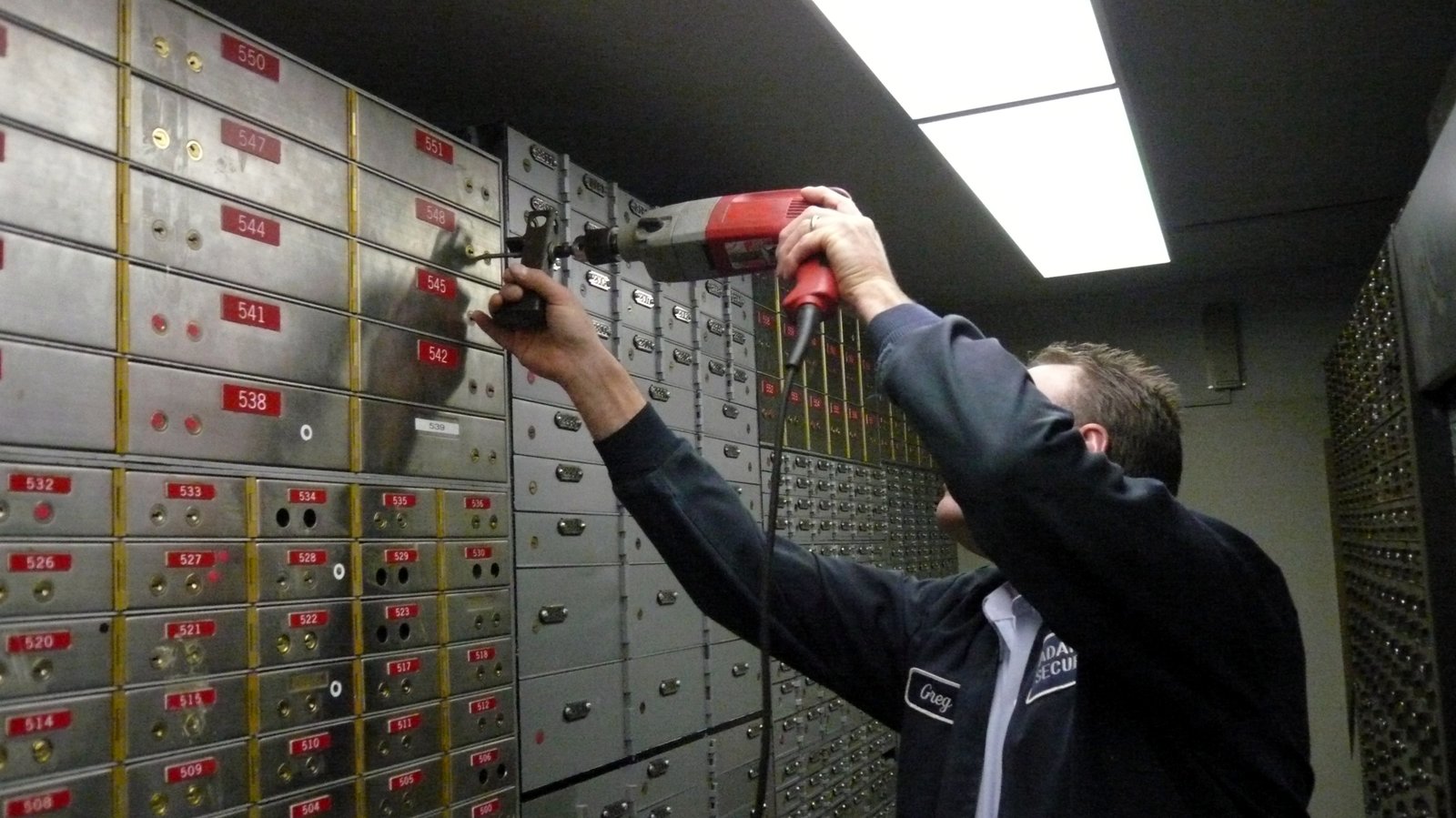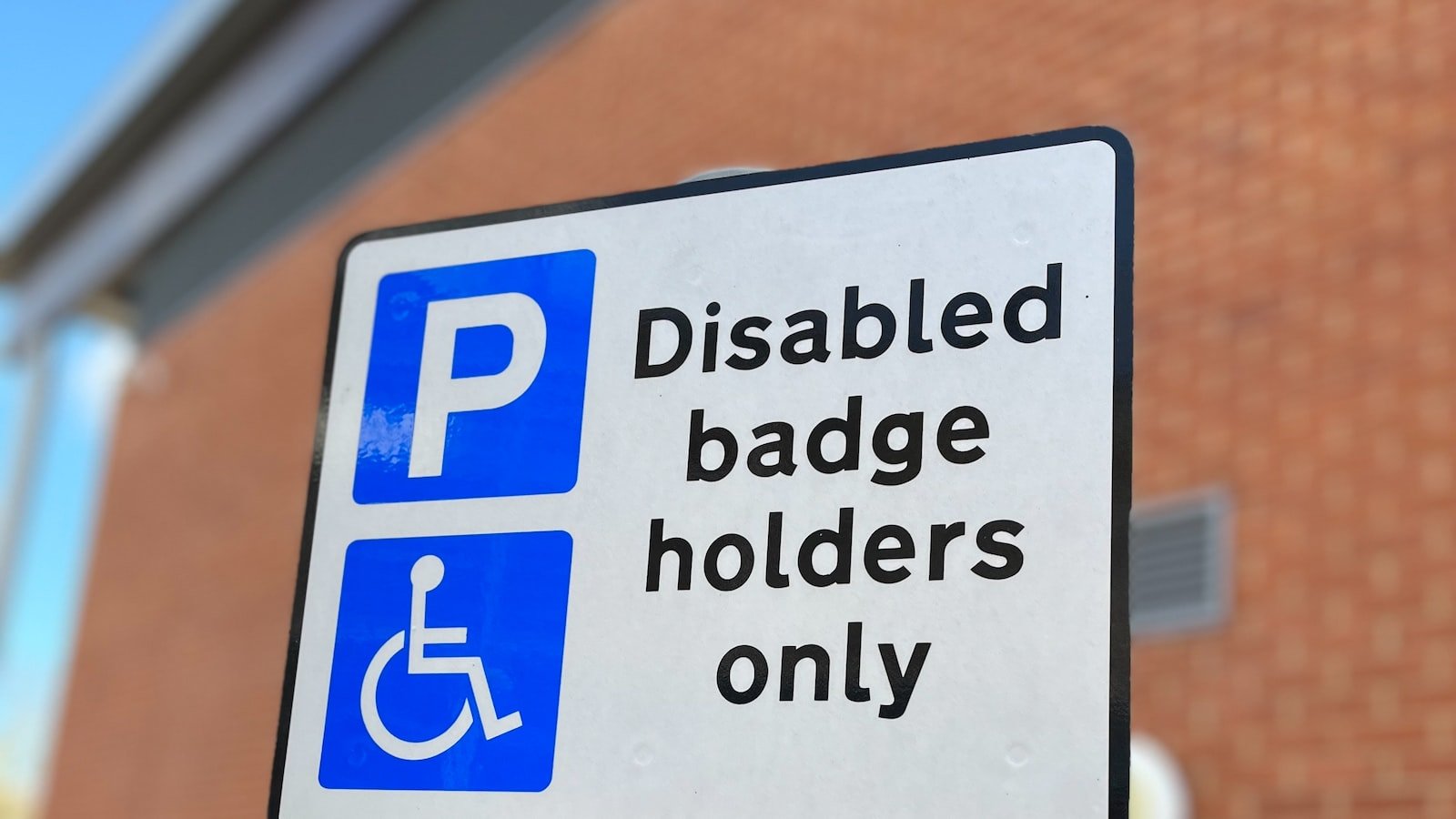Locks, those simple contraptions designed to protect our valuables and safeguard our privacy, have found themselves at the center of an intriguing ethical dilemma. As a fascination turns into a skill, should the age-old art of lockpicking be condemned as unethical, or hailed as a vital tool in the locksmith’s arsenal? With tensions mounting between those who view lockpicking as a threat to security and those who champion its educational and professional merits, it becomes crucial to explore the intricacies and nuances underlying this contentious debate. In this article, we delve into the ethics of lockpicking versus locksmithing, shedding light on the key aspects that demand our consideration and discernment.
Table of Contents
- The Ethics of Lockpicking: Balancing Skill and Responsibility
- Locksmithing as a Profession: Upholding Integrity and Trust
- Understanding the Potential Misuses of Lockpicking Techniques
- Protecting Against Unauthorized Entry: Best Practices and Recommendations
- Navigating the Legality of Lockpicking and Locksmithing
- Q&A
- In Summary

The Ethics of Lockpicking: Balancing Skill and Responsibility
Lockpicking is a skill that has long fascinated individuals across various fields, from locksmiths to hobbyists. However, the ethics surrounding this practice are often a topic of debate. Balancing the skill of lockpicking with the responsibility that comes with it is crucial in ensuring its ethical use.
One key aspect when discussing the ethics of lockpicking is legality. It is important to understand and respect the laws and regulations governing this skill in your jurisdiction. Engaging in lockpicking without proper authorization or for malicious purposes is not only unethical but also illegal. Respecting the boundaries set by society is essential to maintain trust and credibility within the lockpicking community.
Another ethical consideration is the intent behind lockpicking. While it can be used for unlawful activities, lockpicking can also serve legitimate purposes. For example, locksmiths often utilize lockpicking techniques to assist individuals who have been locked out of their homes or vehicles. When used responsibly and with the intention of helping others, lockpicking can be seen as an ethical practice, showcasing the balance between skill and responsibility.
Ultimately, the ethics of lockpicking lie in the hands of the practitioner. It is vital to use this skill responsibly, with a clear understanding of the potential consequences. Respecting the law, considering the intent behind lockpicking, and using this skill to improve security rather than compromise it can help maintain a positive and ethical approach to this fascinating art.

Locksmithing as a Profession: Upholding Integrity and Trust
Locksmithing is not just about fixing locks or creating duplicate keys; it is a profession deeply rooted in upholding integrity and trust. As the gatekeepers of security, locksmiths are entrusted with the responsibility of safeguarding homes, businesses, and valuable possessions.
What sets locksmiths apart is their uncompromising commitment to integrity. Each locksmith understands the immense faith people place in them and continually strives to honor that trust. With meticulous attention to detail, they work tirelessly to ensure that every lock they install or repair is thoroughly secure and impenetrable. They keep up with the latest advancements in the industry and use only the highest quality materials so that their clients can have peace of mind.
- Honesty: Locksmiths adhere to a strict code of ethics, ensuring complete honesty in their dealings with customers. They provide accurate assessments, honest recommendations, and transparent pricing, always putting the customer’s needs above their own.
- Reliability: When you call a locksmith, you can rely on them to arrive promptly and equipped with the knowledge and tools required to solve your lock-related problems. They understand the urgency and importance of their profession and always strive to provide efficient and reliable service.
- Confidentiality: Trust and confidentiality go hand in hand in the locksmithing profession. Locksmiths respect clients’ privacy and ensure that all information shared during a service call remains strictly confidential. They understand the sensitivity of their work and the responsibility it holds.
Locksmithing harbors a rich tradition of not only protecting physical security but also fostering a sense of trust and peace of mind for individuals and communities alike. It is through their unwavering commitment to integrity that locksmiths continue to be recognized as pillars of trust in the realm of security.

Understanding the Potential Misuses of Lockpicking Techniques
Lockpicking techniques have long been seen as a mysterious skill used by locksmiths and hobbyists alike. However, it is essential to acknowledge the potential misuses that can arise from such knowledge. While understanding lockpicking can be beneficial in certain situations, it is crucial to address the ethical boundaries surrounding its application.
One potential misuse of lockpicking techniques is unauthorized entry into private property. Whether it’s breaking into someone’s home or gaining access to restricted areas, individuals with malicious intent can exploit this skill for illegal purposes. This highlights the importance of responsible education and regulation surrounding lockpicking, ensuring that only those with legitimate reasons are equipped with this knowledge.
Another concern is the possibility of lockpicking techniques being used for theft or criminal activities. A skilled lockpicker can effortlessly bypass security systems, jeopardizing the safety of homes, businesses, and valuable possessions. It is imperative that individuals with such knowledge uphold ethical standards and use it solely for legal and legitimate purposes.
Overall, is essential in maintaining a balance between promoting knowledge and preventing illegal activities. Proper education and awareness can help individuals navigate the fine line between responsible use and misuse, fostering a safer environment for all.
Protecting Against Unauthorized Entry: Best Practices and Recommendations
Best Practices for Protecting Against Unauthorized Entry:
In order to maintain the security of our premises and protect against unauthorized entry, it is essential to implement a comprehensive set of best practices and recommendations. By following these guidelines, we can ensure the safety of our personnel and property:
- Access Control: Implement a reliable access control system such as key cards, biometric authentication, or PIN codes. Regularly review and update access privileges to limit entry to authorized personnel only.
- Surveillance Systems: Install and maintain a robust surveillance system to monitor and record activities in critical areas. Consider using high-resolution cameras, motion sensors, and alarms to deter potential intruders.
- Physical Barriers: Utilize physical barriers like gates, fences, and bollards to restrict access to sensitive areas. Regularly inspect and repair any damage to ensure the integrity of these barriers.
- Security Personnel: Employ vigilant security personnel who are trained to identify suspicious behavior and respond promptly to threats. Conduct regular training sessions to keep them updated on the latest security procedures and protocols.
- Visitor Management: Implement a visitor management system to track and monitor all individuals entering and exiting the premises. Ensure that all visitors are properly identified and escorted while on site.
By following these best practices, we can create a secure environment and minimize the risk of unauthorized entry. Remember, security is an ongoing effort that requires regular evaluation and adaptation to stay one step ahead of potential threats.
Navigating the Legality of Lockpicking and Locksmithing
When it comes to lockpicking and locksmithing, understanding the legal boundaries is crucial. While the act of picking locks may seem mysterious and sometimes portrayed in a negative light, it’s important to note that the legality can vary depending on several factors. Here are a few key points to consider when navigating the legal landscape of lockpicking and locksmithing:
- Local Laws: Before embarking on any lockpicking endeavors, it’s essential to familiarize yourself with the laws and regulations of lockpicking in your specific location. Laws can greatly differ from one jurisdiction to another, so proper research is an absolute must.
- Intent: The intention behind lockpicking plays a significant role in its legality. Generally, lockpicking for educational purposes, professional locksmithing, or lawful entry (e.g., when hired by a property owner) is often considered legal. However, engaging in lockpicking with illicit intent, such as breaking into someone’s property, is strictly illegal and punishable by law.
- Ethics and Professionalism: Apart from legality, it’s essential to uphold ethical standards and practice professionalism when it comes to lockpicking and locksmithing. This entails respecting others’ privacy, not engaging in unauthorized activities, and maintaining confidentiality.
By obtaining a deep understanding of the legalities surrounding lockpicking and locksmithing, one can ensure that their actions are in compliance with the law. Remember, knowledge, responsible practices, and respect for the boundaries are the key to successfully navigate this intriguing world.
Q&A
Can anyone learn lockpicking?
Absolutely! Lockpicking is a skill that can be learned by anyone with the right tools and resources. However, it’s important to remember that it’s illegal to use this skill without permission or for malicious purposes.
Is lockpicking considered an ethical practice?
Lockpicking itself is not inherently unethical. It is a skill used by locksmiths to help people who are locked out of their property or have lost their keys. However, using lockpicking skills without proper authorization or for criminal activities can be highly unethical.
What are the ethics involved in locksmithing?
Locksmithing is an ethical and necessary profession. Locksmiths are trained to provide secure services to individuals in need, such as unlocking doors for those who are locked out or replacing damaged locks. The ethics lies in respecting the privacy and security of others while providing necessary assistance.
Is it legal to practice lockpicking as a hobby?
In many jurisdictions, lockpicking as a hobby is legal. However, it is crucial to adhere to local laws and regulations. Engaging in lockpicking without proper authorization or trespassing onto others’ property may still be a legal violation in some cases.
What are the potential dangers of amateur lockpicking?
Amateur lockpicking can lead to unintended consequences, such as causing damage to the lock, door, or property. Additionally, attempting to pick locks without proper knowledge and experience may result in injury. It’s important to respect others’ property and personal safety when engaging in lockpicking activities.
How can someone become a professional locksmith?
Becoming a professional locksmith typically involves completing a training program or apprenticeship that provides in-depth knowledge of lock mechanisms, security systems, and various techniques. Obtaining relevant certifications and licenses is also essential to establish credibility and legality in the profession.
Are there any ethical dilemmas locksmiths might face?
Locksmiths may face ethical dilemmas, especially when it comes to maintaining client confidentiality and protecting the security of their services. They must balance their commitment to providing access to those in need with the responsibility to ensure that their skills aren’t used for illegal or unauthorized purposes.
What precautions should locksmiths take to ensure ethical practices?
Locksmiths should always verify the identity and ownership of properties they are working on to ensure authorized access. They should prioritize client confidentiality and strictly adhere to professional standards and codes of ethics. It’s crucial to stay updated on legal requirements and constantly evaluate the ethical implications of their actions.
In Summary
In a world where locks both hinder and protect, the delicate dance between lockpicking and locksmithing can leave us pondering the boundaries of ethics. We have dissected the intricate nuances of this age-old debate, delving deep into the moral fabric that weaves these two artforms together. As our exploration comes to a close, we are left with a newfound appreciation for the multiplicity of perspectives that shape our understanding of this ethical labyrinth.
Through this journey, we have glimpsed into the mysterious world of lockpicking, unraveled the secrets of tumblers and pins, and understood the sheer artistry involved in manipulating these intricate mechanisms. While some may argue that lockpicking embodies a nefarious art, teetering on the precipice of legality, we must also recognize the noble intentions that drive a curious mind and a skilled hand. From the misunderstood hobbyist to the frustrated individual locked out of their own abode, lockpicking can offer salvation, enlightenment, and a renewed sense of self-reliance. Yet, caution must prevail, for the line between lawful curiosity and unlawful intent can be perilously thin.
Conversely, the realm of locksmithing stands resolute, symbolizing trust, security, and a steadfast dedication to safeguarding the sanctity of human existence. These unsung heroes of the modern age find solace in their craft, lending their expertise to those who find themselves in dire straits. Serving as the gatekeepers of our protected spaces, locksmiths embody a moral responsibility not only to their clients but also to society as a whole. With their delicate touch and unwavering integrity, it is they who ensure that the right keys find their rightful owners, preserving the harmony between safety and accessibility.
So, where do we draw the ethical line that separates these two intertwined worldviews? As we reflect upon our journey, it becomes abundantly clear that the answer is not black and white but rather an ever-shifting gray. In this ethereal realm, context, intention, and the delicate interplay between rights and responsibilities all gain prominence.
Ultimately, the ethics of lockpicking and locksmithing demand a profound understanding of the human condition. It necessitates a delicate balance between exploring our innate curiosity and safeguarding the well-being of our fellow beings. For it is by embracing the shadows that we can truly appreciate the light, and it is through understanding the ethics that bind lockpicking and locksmithing that we can forge a more harmonious world, where security and exploration coexist in a delicate symbiosis.
As an affiliate, my content may feature links to products I personally use and recommend. By taking action, like subscribing or making a purchase, you’ll be supporting my work and fueling my taco cravings at the same time. Win-win, right?
Want to read more? Check out our Affiliate Disclosure page.